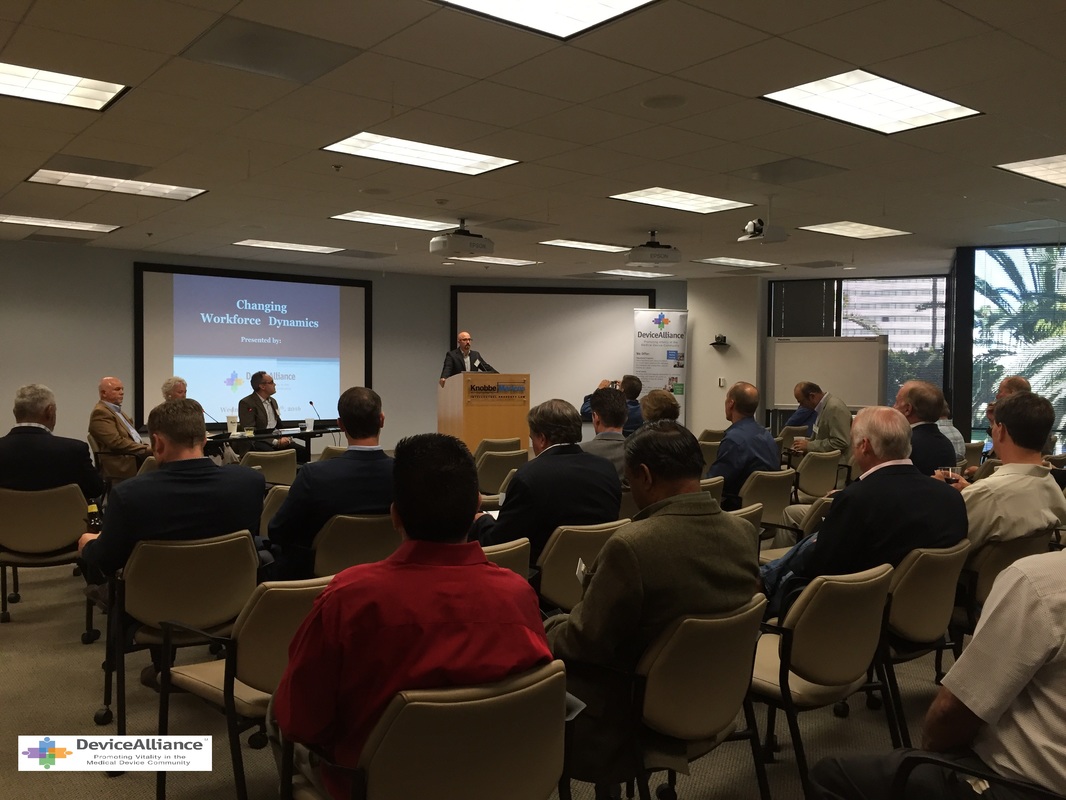|
Last week a friend and I had an interesting conversation over dinner having to do with hiring new grads from college. The two of us agreed that we have seen a rise over recent years with the number of people coming out of college ill-prepared for the working world. But why? We discussed the disparity that exists with some new grads and their ability to actually put their years of scholastic achievement to work in the real world. Regardless of their GPA many of them struggle and it has employers concerned, especially in the engineering world. This is where our conversation hit a crucial point and where the rubber meets the road for our recent college graduates: theory versus application. In academia theory is served up on a silver platter. Students learn by lecture, book and lab. They learn the ideal setting and framework of hundreds of concepts. What they learn is ‘HOW’ something works, where it comes from and should you need to replicate it follow these guidelines, etc. Kind of like a recipe for baking a cake. Follow these instructions and the result will be a nice red velvet cake. My favorite! Unfortunately what we get a lot of times after the supposed recipe has been followed by new grads is not red velvet cake at all. It’s a pile of crap that doesn’t remotely resemble a cake nor is it edible. Simply being able to follow a recipe, or recite a definition for that matter, does not mean you truly understand the concept which can be a really rude awakening for a newly hired recent graduate in the working world. Our recent engineering grads may be able to tell us the definition of Ohms Law, reciting it verbatim however they struggle to actually use that same theory in practice in the working world when it actually counts. What academia fails to accomplish is teaching and engraining in its students heads the ‘WHY’ part of the recipe, not just the ‘How’. Learning the ‘WHY’ behind a concept provides us with a larger frame of understanding rather than just surface level information. This articulates the important difference between information and knowledge. (information = theory whereas knowledge = application) When we know why something exists we can better apply said concept to real world settings and or make suitable adjustments when things go array. The ‘WHY’ piece also addresses creativity. When we’re confronted with an issue or challenge in the working world there’s no professor or recipe to help keep us on track. No directions that say ‘substitute this for that if this happens’. One has to be able to draw on their creative juices AND theory to come up with possible solutions. Why do recent grads struggle with applying their education in the workplace? My humble opinion falls on two primary contributors:
Don’t worry employers. Fret not new grads, we can fix this challenge so that everyone comes out on top. How can we change this to help our new grads?
0 Comments
Last week I had the honor of moderating a speaking engagement put on by Device Alliance in Irvine, CA. If you aren’t familiar with Device Alliance (DA) it’s a Medical Device industry association whose primary focus is providing a supportive platform for the continued knowledge development and relationship building within the medical device industry in SoCal. The purpose of the event on July 20th was simple – to have an informative discussion on ‘Changing Workforce Dynamics’ surrounding these three topics:
As we got into the meat of the content for the evening I started to pick up on a topic that seemed like it was trending in a fair amount of our conversation.
Is the Medical Device industry attracting younger generations at the rate it should? There seemed to be a fair amount of dialogue and a bit of concern from some people present at the event addressing a discrepancy within the industry as it seemed that new grads weren’t flocking to medical devices like they once had. I can’t substantiate this claim to say ‘yes’ it’s happening, or ‘no’ it isn’t, however it’s a powerful topic to discuss because it’s a potential challenge we face in the near term if in fact it is true. So let’s hypothesize for a moment: If new talent, in particular younger generations, are not entering the medical device industry like they used too, what are the potential cause and effects we’re faced with? CAUSES:
EFFECT:
Is the Medical Device industry attracting younger generations? What are you thoughts? Agree or disagree? Millennials have a tendency to get a bad rap as a collective group. There’s a lot of people who write articles on the Millennial generation, often times I find the information within those articles to be a bit brash, at times lacking hands on experience, as the information comes from a survey or a study. It seems as though there are a fair amount of people who came before the Millennial generation who have a hard time understanding and interacting with Millennials in general.
As a result they label an entire generation as ‘difficult to manage’, ‘entitled’, ‘impatient’ and ‘socially incompetent if it wasn’t for their smart phones’. Ouch! Back in the day them be fighting words. I may not be a Millennial but I do believe there’s a lot more to this group of people than meets the eye. By the by, older generations have been throwing haymakers at younger generations for decades, so perhaps the Millennials getting a bad rap is nothing new. Each time a new generation becomes of adult age and starts entering the workforce, the generations that have to deal with them always have the same song and dance. Perfect example is what happened with The Beatles. When The Beatles hit the US for the first time in 1964 the Silent Generation (parents at this time) almost keeled over thinking their kids (Baby Boomer generation) were going off the deep end. Why? Because the kids of that day were listening to the musical sounds of long haired, sex-centric, young men who wore weird flashy military clothes and sang of love and peace. Last time I checked The Beatles are about as bad for you as the broccoli I reluctantly ate last night. I have a different outtake on our Millennial cohorts. After the better part of a decade of leading and working side by side with them, I believe, and have experienced firsthand, that the Millennial generation stands to make one of the biggest positive contributions to society we’ve seen in several generations. Big words, I know, but allow me to share with you why I believe this. #1 Fearlessness Millennial are fearless. They grew up in a world where dear ole Mom and Dad told their young techies that they could do and accomplish anything. They were born winners. (regardless if that was true or not) As a result, the Millennial are fearless and act accordingly in the workplace. They would rather up and leave a stale job to start something new, even if that meant completely starting over. They’re built to be entrepreneurs. Perhaps some of that can lead to entitlement, but I believe it gives them an edge that allows them to overcome barriers to entry that would otherwise keep out those of us that are less optimistic or daring. There are some great case studies out there right now which highlight the fearlessness within the Millennial generation. Learn about anyone of these people and you’ll see what I’m talking about: Mark Zuckerberg (Facebook), Evan Spiegel/ Bobby Murphy (Snap Chat), Palmer Luckey (VR Oculus), Adam D’Angelo (Quora) and John & Patrick Collison (Stripe). #2 Expectations of Grandeur Unlike delusions of grandeur, Millennials are used to things working well and improving consistently. Back in the day people settled for mediocre technology and products, because well that’s all we had. Millennials are quite different. They expect companies to produce great results. When they don’t, the companies hear about it before the products even hit the shelves through a barrage of tech talks, social media outpouring, etc. This cause and effect keeps companies, especially consumer electronics manufacturers on their feet, which is good for everyone. Millennials are also used to change, even expect it. Unlike The Silent generation who would be with the same company for their entire career, Millennials don’t have a problem switching things up if they don’t like something. Again, this causes employers and managers to have to be on their toes providing quality places to work. If they don’t, Millennials just won’t work there, or for long. Change is part of life, some deal with it well, others not so much. Millennials embrace it and encourage it. There are three things in life that are certain…death, taxes and change. Millennials have at least a leg up on us on the third one. #3 Technology Whizzes This number tends to be all over the place, however most signs point to a Millennial being someone who was born between 1983 – 2004. It’s the technology generation. Internet not only changed the world at large but it changed this generation. By the time Millennials where in high school they had internet access to assist with research papers, fact finding, even websites providing information on their teachers sharing who was worthy and who not. (I would have loved information like that when I was in school as I felt like some of my teachers were Mrs. Krabappel from the Simpsons) Obviously the internet has made a huge impact on society at large. So too has the iPod with music, the personal computer, social media and gaming, to name a few. All of these have revolutionized the way we live and interact with others, yet these things are second nature to those in the Millennial generation. They were born with a joystick in their hand or a TV on in the background and it’s become a central part of their life. As a result their ability to use and create technology often surpasses other generations. Lastly, they enjoy having technology at the forefront of their daily life, which definitely isn’t the same with other generations. Call it a dependency, call it whatever you want, however the outcome is that Millennials are superior as it relates to their understanding and use of technology which in turn gives them an edge for the future when we’ll all be living like the Jetsons. #4 Creative Expression More and more Millennials are venturing outside the norm and creating their own path as it relates to the workplace and social interactions. Why is this? Well, because they have too. In a world where so much has already been done, the Millennial generation has to be creative in order to compete. Millennials also make up for the largest group of people in the world who write blogs, build websites and upload audio & video files for information sharing. They also have a keen eye for design and art as they were born and brought up with products where form & fit was just as important as function. Don’t believe me? The proof is in the pudding with the fact that websites like Deviant Art are in the top 50 most trafficked sites on the net. By now my hope is that some of you reading this have given some new thought to the Millennial generation. Sure, there may be some bad apples out there that rep the Millennial generation, as there are with all generations, but the larger number of people have a lot to offer. When you take the attributes of the Millennial generation and place them side by side one another (fearless, high expectations, technology experts, creative) you’ve got a recipe for a group of people who can and WILL do great things in their lifetime. They have all the ingredients necessary to lead us into the next frontier. It just might take some time as they’ve barely been in the workplace a full decade. So let’s be patient and see what happens. As a token of my appreciation to the Millennials I’ve had the chance to partner with, learn from and lead, I am forever thankful to you for the opportunity to work side-by-side with you all. Your fearlessness has become my driving force in all I do. Understanding The Mind Of A Millennial5/20/2016 In early November 2015 I wrote an article on the four reasons why Millennials will change us for the better, professionally, in the years to come. Since then I’ve had several opportunities to discuss that article as well as Millennials in general. Thanks to the help of a close friend (a Millennial) who offered some perspective on the topic I’ve managed to come to a conclusion on why Millennials and past generation’s leaders experience challenge. My conclusion: few people that are non-Millennials actually understand what drives Millennials and how to harness that knowledge to successfully coexist.
I was able to reach this conclusion as a result of three sets of experiences: 1) I’ve been lucky enough to manage Millennials closing in on 10 years and have experienced firsthand what they like, dislike and just straight up won’t deal with. Some of these experiences were successes and others, well not so much. One thing is for certain all the experiences have been great learning lessons, especially those in which I made mistakes. 2) I’ve read dozens of articles, books and blogs from reputable sources that speak in one regard or another to the change, challenge and complexity of managing new generations entering the workforce, in particular the Millennial generation. These resources often times talk about the differences between the Millennials and other generations which provides insight and perspective. 3) From an age perspective I fall on a weird time continuum where I don’t exactly belong to either generation, Gen-X or Millennials 100% as my date of birth falls on the cusp of when Gen-X ends and Millennials begin. As a result I have been told that I have a unique set of characteristics which are a combination of the two generations: an old school work ethic with a new school approach to business and leadership. While my conclusion on the Millennials and reasons supporting it aren’t entirely scientific I do believe it gives me a unique approach in dealing with and understanding Millennials which is the reason for this article. In prior articles I’ve shared that good leadership is an art form, one which is incredibly difficult to master. In the old days leading was mostly done by fear, with a command and conquer, take no prisoners attitude. Millennials are teaching us lots of new things, one of the biggest being that authoritarian leadership isn’t the only way, or best way for that matter, to successfully get things done at the office. Millennials are changing the way we go about business as entire industries are changing their marketing strategies and how companies present themselves, in an attempt to adjust to the Millennial juggernaut. Leadership is also changing as a result of the Millennials, the change is slow but we’re seeing change nonetheless. Perhaps you’ve witnessed it, or read one of the thousands of articles or books on the Millennial subject, as a result you know that traditional management styles are failing to produce the same results with the young professionals of today. The reason why the authoritarian leadership style struggles to successfully work with the Millennial generations goes back to my conclusion. So let’s dive into the mind of the Millennial to better understand how they operate (as I dare to grossly stereotype an entire generation – this will be fun):
To continue diving into the Millennial mind click here for the full article. About the AuthorTravis Smith is the founder and managing director of Square-1 Engineering, a medical device consulting firm, providing end to end engineering and compliance services. He successfully served the life sciences marketplace in SoCal for over 15 years and has been recognized as a ‘40 Under 40’ honoree by the Greater Irvine Chamber of Commerce as a top leader in Orange County, CA. Categories
All
Archives
July 2024
|
Visit Square-1's
|
|




 RSS Feed
RSS Feed


